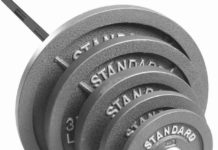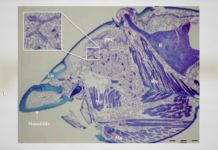Table of Contents
The low-carb diet has been around for decades and is an effective way of losing weight and keeping it off. In this guide, we'll cover what is a low-carb diet, the potential health benefits, meal planning ideas, food choices and more.
The low-carb diet has become an increasingly popular way of eating, as it has been linked to various health benefits and weight loss. With any diet, there can be a lot of questions, so here are some of the most commonly asked questions about the low-carb diet:
- How many carbs should I eat per day?
- Are there any foods I should avoid on a low-carb diet?
- Does the low-carb diet have any potential health benefits?
- Are there any special supplements or additives recommended for the low-carb diet?
- How do the low-carb diet compare to other diets?
These are just some of the common questions people have about the low-carb diet. In this guide, we will provide an answer to these questions and provide more information on the diet, its benefits, and strategies for success.
What's Is It?
A low-carbohydrate diet is one that limits carbohydrate consumption. This means that you will be eating fewer foods that are high in carbohydrates, such as bread, pasta, rice, potatoes, and sweets. Instead, you will eat more proteins, fats, fruits, vegetables, and whole grains. In general, the fewer carbs you eat the more you will experience weight loss.
When following a low-carb diet, it is important to realize that there are two different types: short-term and long-term. Short-term diets usually last between two and four weeks, and are designed to help you lose weight quickly. Long-term diets, on the other hand, are designed for sustainable weight loss and may last up to a year or longer.
What Are the Benefits of Low-Carb Dieting?
The potential health benefits of a low-carb diet should not be overlooked. Cutting back on carbohydrates can help you reduce your risk of many chronic diseases, such as heart disease, type 2 diabetes, and some types of cancer. It can also help with blood sugar regulation, cholesterol levels, and overall health. However, it is important to note that these benefits may vary depending on an individual's specific health history.
Meal planning is essential when it comes to following a low-carb diet. A successful meal plan should provide balance and variety, while also helping to keep your calorie count in check. You will want to focus on eating more lean proteins, healthy fats, and fibrous vegetables. Try to avoid processed foods and added sugars as much as possible.
In addition to meal planning, it is important to know which foods to choose when following a low-carb diet. Whole grains such as oats, quinoa, buckwheat, and brown rice can all be part of a healthy low-carb diet. Fruits and vegetables, especially leafy greens, should also be a major part of your diet. Healthy fats like avocados, olive oil, nuts, and seeds should also be included. Proteins like fish, eggs, chicken, and tofu can all be part of a healthy low-carb diet.
The potential health benefits of following a low-carb diet cannot be understated. Not only can it help with weight loss, but it can also help you reduce your risk for various chronic diseases. It can help regulate your blood sugar levels, cholesterol levels, and overall health. Additionally, research has shown that low-carb diets can lead to increased energy levels, improved mental clarity, and better digestion.
It can be challenging to stick to a low-carb diet for a long period of time. To make it easier, it is important to have a solid meal plan, engage in mindful eating, and practice self-care. Additionally, there are a number of supplements that may be beneficial to those on a low-carb diet. Some of these include magnesium, vitamin D, and omega-3 fatty acids.
Finally, it is essential to know the differences between the low-carb diet and other diets, such as the keto diet and the paleo diet. While all of these diets focus on limiting carbohydrates, they have many differences. For example, the keto diet focuses on eating high-fat and low-carb, while the paleo diet is focused on eating whole foods and avoiding processed foods.
By following the tips outlined in this guide, you'll have the necessary information to successfully follow a low-carb diet. Whether you want to try it for a few weeks or make it a long-term lifestyle choice, this guide can help you get started.
Length of Diet
When it comes to the low-carb diet, there is no one-size-fits-all approach. Different people will have different length of time periods in which they follow the diet. Some dieters may choose to go on the diet for a short period of time while others may want to stick to it for a longer period.
Short-term dieting can be defined as a diet lasting anywhere from a few days to a few weeks. Many people choose to do a short-term diet when they have a specific goal, such as shedding a few pounds before an upcoming event. On the other hand, long-term dieting is typically considered any diet that lasts for two months or more. Long-term diets are usually done for those looking for more permanent change and health benefits.
It is important to note that some people may not be able to sustain a long-term low-carb diet due to a variety of factors. These may include lack of access to the right types of food, limited time to prepare meals, or difficulty maintaining motivation. For these individuals, short-term dieting may be a better option as they can still experience certain health benefits without having to commit to the diet over an extended period of time.
Meal Planning on a Low-Carb Diet
A low-carb diet can help you lose weight and improve your health. It’s important to understand the basics of how to plan meals that adhere to the specific guidelines. By following a few simple steps, you’ll be able to create delicious, healthy meals that fit within the parameters of a low-carb diet.
The first step in meal planning is to determine which types of food are allowed on a low-carb diet. Generally, carbohydrates should come from healthy sources such as vegetables, legumes, fruits, nuts, and seeds. Processed foods, sugars, and refined grains should be avoided. The next step is to make sure that the meals contain adequate protein and healthy fats. Protein sources can include eggs, fish, poultry, meat, and dairy. Healthy fats can come from avocados, olive oil, nuts, and seeds.
It’s also beneficial to incorporate a variety of different vegetables into the meal plan. Choose dark leafy greens, cruciferous vegetables such as broccoli and cauliflower, and root vegetables like carrots and sweet potatoes. Lastly, consider adding spices, herbs, and other flavorings to meals to add extra nutrition and make them more enjoyable.
When it comes to portion sizes, it’s important to make sure to get adequate amounts of protein and fat each meal. This can range depending on individual needs, but the average recommendation is to have roughly one-third of the plate filled with protein, one-third with vegetables, and one-third with healthy fats.
For healthy snacks, look for options that provide a good balance of protein and healthy fats. This could include a hard boiled egg and an apple, nuts and dried fruit, or a piece of cheese and a handful of nuts.
Finally, keep in mind that planning meals for a low-carb diet doesn’t have to be overly complicated. Simple recipes with a few ingredients are often the most satisfying and nutritious. With a little bit of experimenting, you’ll soon find a variety of meals that fit perfectly into your low-carb lifestyle.
Sample Menus for a Low-Carb Diet
Following a low-carb diet can be a great way to improve your overall health, lose weight, and increase your energy levels. However, the challenge of maintaining the diet over time is often the most difficult part. Meal planning is essential to help you stay on track and stick with the diet in the long term.
When it comes to meal planning for a low-carb diet, it’s important to remember that the focus should be on choosing unprocessed whole foods such as vegetables, fruits, lean proteins, nuts, seeds, and healthy fats. Here are some examples of low-carb meals that are easy to prepare:
- Breakfast: An omelette made with three eggs, spinach, peppers, mushrooms, and feta cheese.
- Lunch: A salad made with mixed greens, grilled chicken, avocado, tomatoes, cucumber, and olives.
- Dinner: Grilled salmon served with roasted broccoli and cauliflower.
- Snacks: Celery sticks dipped in almond butter, Greek yogurt with mixed berries, and hard boiled eggs.
If you’re having trouble coming up with meal ideas for a low-carb diet, there are plenty of cookbooks and websites available that provide inspiration. Meal prepping and planning ahead for the week can also help make it easier to stay on track. And don’t forget to include healthy snacks throughout the day so you never feel too hungry or deprived.
Food Choices on a Low-Carb Diet
When considering what types of food to eat on a low-carb diet, it is important to look for foods that have few carbohydrates and are high in protein and healthy fats. This includes foods such as lean meats, fish, eggs, nuts, seeds, non-starchy vegetables, avocados, and full-fat dairy products.
It is generally recommended to limit refined carbs and added sugars, which are commonly found in processed foods and include items such as white bread, pasta, candy, and baked goods. Instead, opt for unprocessed food sources such as whole grains, fruits, and vegetables.
Including healthy fats in the diet is also encouraged as they can help keep you feeling fuller for longer. Healthy fats come from sources including fatty fish, avocados, nuts, and seeds. Eating fatty cuts of meat and full-fat dairy products can also provide extra calories and help you stay satisfied.
While following a low-carb diet, it may be helpful to track your food intake in order to monitor your macronutrient intake and make sure you’re getting enough protein and healthy fats. Many apps allow you to track your food intake and provide helpful guidance on what types of foods to include.
Benefits of the Low-Carb Diet
The low-carb diet has been around for a long time, and there are many potential benefits to following this type of eating plan. From weight loss to reducing your risk of chronic conditions, the low-carb diet can be an effective way to improve your health.
One of the main benefits of the low-carb diet is that it can help you lose and maintain a healthy weight. By reducing the number of carbohydrates in your diet, you're able to control the amount of calories you consume, helping to prevent weight gain and promote weight loss.
The low-carb diet can also help reduce the risk of chronic diseases like heart disease and diabetes. Eating fewer carbs can help lower your blood sugar levels, which can decrease your risk of developing type 2 diabetes. Additionally, by reducing your intake of processed carbs, you’re able to increase your intake of healthy proteins and fats, which can lower your risk of heart disease.
Another benefit of the low-carb diet is that it can help reduce inflammation. Eating fewer carbs helps reduce the production of inflammatory molecules in the body, which can improve joint health and reduce the risk of developing autoimmune conditions.
Finally, the low-carb diet can help improve mental clarity and focus. By reducing the amount of carbs in your diet, you can increase your levels of serotonin, dopamine, and other “feel-good” neurotransmitters, which can enhance mood and reduce symptoms of depression and anxiety.
These are just some of the potential benefits of the low-carb diet, and there are many more. As always, it’s important to consult with your healthcare provider before starting any new diet or lifestyle change.
Challenges on the Low-Carb Diet
When embarking on any new diet, it's important to be aware of any potential challenges and have strategies in place to overcome them. The low-carb diet is no different, and there are some common obstacles that people may face while following the diet. It's important to stay mindful of these challenges and maintain a positive attitude.
One of the biggest challenges of a low-carb diet is dealing with cravings. Many carb-rich foods like bread, rice, and sweets can be incredibly tempting when trying to cut back. To ward off cravings, it is helpful to plan ahead and always have healthy, low-carb snacks and meals on hand. Additionally, focusing on getting enough protein and fiber can help keep hunger at bay.
Another challenge of the low-carb diet is finding creative ways to make meals that are both interesting and low in carbohydrates. Fortunately, there are plenty of delicious recipes out there that focus on lean proteins, plenty of vegetables, and healthy fats. Utilizing spices, herbs, and seasonings can also help to make low-carb meals more flavorful.
The low-carb diet may also require a bit of extra preparation in terms of shopping and meal planning. Taking the time to make a weekly grocery list and meal plan can help to make life easier and reduce stress. Meal prepping meals in advance also ensures that there are always tasty and healthy options available.
Finally, the low-carb diet may take some time to get used to. It can be challenging to break old habits and create new ones, so it is important to be patient with yourself and give your body time to adjust. As long as you stay motivated and focused, you will be well on your way to achieving your goals.
Supplements for Low-Carb Diets
Including supplements or additives to your low-carb diet can help you get the most out of the diet and maximize its benefits. Some popular supplements for a low-carb diet include omega-3 fatty acids, fiber, probiotics, and protein powders. These supplements can help provide essential nutrients that may be lacking in the diet while also helping to reduce inflammation and promote healthy digestion and gut health.
Omega-3 fatty acids are found in fish and other seafood, and can also be taken in supplement form. Omega-3s are known to have anti-inflammatory properties, which can help protect your heart and reduce risk factors for chronic diseases. They can also help improve brain function and boost mood.
Fiber is another important supplement for any diet, and is especially important for low-carb diets since it helps regulate blood sugar levels. Soluble fibers, like psyllium husk, can help keep you feeling fuller longer, while insoluble fibers, like wheat bran, can help promote regularity.
Probiotics are beneficial bacteria that can help improve digestion and nutrient absorption. Probiotics also help support immunity and reduce inflammation. Taking a daily probiotic supplement with live active cultures can help ensure that you are getting the recommended amount of beneficial bacteria.
Finally, protein powders can be an effective way to get additional protein into your diet without extra carbs. Whey and casein protein powders are both good options for adding protein to your diet. They’re easy to mix into shakes and smoothies for a convenient snack or meal replacement.
By incorporating these supplements into your low-carb diet, you can ensure that you get all of the vital nutrients that you need to stay healthy and achieve your goals.
Sticking to the Low-Carb Diet
It can be challenging to adhere to a low-carb diet over the long-term. Many people find it hard to maintain their dietary changes and give up on their dreams of achieving optimal health. To be successful in the long-term, it is important to have strategies in place that will help you stay on track. Here are some tips for staying on the low-carb diet successfully:
- Keep a food journal: A food journal can help you track your progress and spot any bad habits that could be preventing you from achieving your goals. It can also be used to celebrate successes as you reach milestones.
- Make small changes: Small changes over time can lead to big changes over the long-term. Make realistic goals for yourself and focus on making small, sustainable changes.
- Find a support system: Having a group of friends or family members who understand what you’re going through can make a big difference. Find people who will support your journey and help keep you motivated.
- Plan ahead: Meal planning is key when it comes to following a low-carb diet. Make sure to take the time to plan out your meals ahead of time, so that you don’t get caught off guard or end up eating something that doesn’t fit into the diet.
- Take time for yourself: Taking time to relax and unwind is an important part of staying on track with your diet. Find activities that make you feel good and that you enjoy, and make sure to take time for yourself every day.
By following these tips, you can increase your odds of success on the low-carb diet and enjoy long-term results.
Comparing and Contrasting the Low-Carb Diet to Other Diets
The low-carb diet differs from other diets in many ways. It is important to understand why this type of diet works differently than other diets. Firstly, the focus of the low-carb diet is to reduce the amount of carbohydrates consumed while ingesting high amounts of healthy fats and proteins. Other diets focus heavily on restricting calories and fat consumption, while the low-carb diet does not.
Furthermore, when compared to other popular diets, the low-carb diet is much more sustainable. This is because it is a lifestyle choice rather than a strict diet plan. It allows for more freedom and creativity when it comes to meal planning. Additionally, because it focuses on macros instead of calories, you can still enjoy foods that you may not normally be allowed on other diets.
The low-carb diet also differs from other diets in terms of how quickly it can help you reach your goals. With other diets, it can take months for results to show. However, with the low-carb diet you can start to see results within the first week. This is due to the fact that when you cut down on carbohydrates, your body will use stored fat for energy instead.
Finally, the low-carb diet is known to have positive health benefits beyond weight loss. Studies have shown that following a low-carb diet can help lower levels of “bad” cholesterol, blood pressure, and inflammation. This is because reducing your carbohydrate intake causes your body to produce less insulin, which is responsible for controlling your blood sugar levels.
Final thoughts: A Summary of the Low-Carb Diet
The low-carb diet is an eating plan that focuses on limiting carbohydrates, which are found in many foods including grains, beans, legumes, and certain fruits and vegetables. This type of diet may help promote weight loss and reduce risk factors for some chronic diseases, such as type 2 diabetes. The low-carb diet can be structured for short-term or long-term use, and meal planning, food choices, and supplement usage must be taken into account.
When it comes to meal planning, it's important to think about nutrient-dense, low-carbohydrate options. Sample menus can be created to get an idea of how to assemble a balanced plate. Additionally, there are various foods that may be enjoyed while following the diet, such as poultry, fish, eggs, nuts, and seeds.
In addition to potential health benefits, there are some common obstacles that people face when beginning a low-carb diet. Challenges such as hunger, cravings, and low energy levels may occur, and building strategies to combat these issues is key. Supplements may be taken to enhance gains on the diet, and tips for long-term success should be determined and followed. Finally, it's important to compare and contrast the low-carb diet with other dietary plans to determine what is best suited for individual needs.
At the end of the day, the goal behind the low-carb diet is to promote optimal health – both physical and mental. If you're considering trying this type of diet, be sure to do your research and consult with a healthcare professional to ensure that it's the right choice for you.
Frequently Asked Questions About a Low-Carb Diet
What is a low-carb diet?
A low-carb diet is an eating plan in which carbohydrates are limited or avoided. It involves eating more protein and fat, but still provides enough fruits and vegetables.
How does a low-carb diet work?
A low-carb diet tends to reduce your appetite and help you eat fewer calories without having to consciously restrict your caloric intake. This is achieved by reducing the carbohydrates that trigger insulin release and cause carbohydrates to be stored as fat in the body.
What are the potential health benefits of following a low-carb diet?
Following a low-carb diet can potentially lead to weight loss, improved blood sugar levels, increased energy levels, and reduced risk of chronic diseases.
How long should a person stay on a low-carb diet?
The length of time on a low-carb diet depends on each individual's goals and needs. Generally speaking, short-term diets (2-4 weeks) are used to jump-start a weight loss program, while long-term diets are typically followed for 6 months or more.
What types of food can be eaten on a low-carb diet?
On a low-carb diet, foods such as meat, fish, eggs, low-carb vegetables, nuts, seeds, and dairy are allowed. While some carbohydrates like fruits and grains are still allowed, they should be consumed in moderation.
Are there any supplements or additives that can enhance the potential gains from following a low-carb diet?
Certain supplements, like Omega-3 fatty acids, magnesium and probiotics may be beneficial for those following a low-carb diet. Additionally, certain additives like vinegar and cinnamon can help with blood sugar control.
What tips and strategies can help people stick to the low-carb diet?
Eating smaller meals more frequently throughout the day, drinking plenty of water, planning ahead, and having someone hold you accountable can all help in staying on track with a low-carb diet.
















